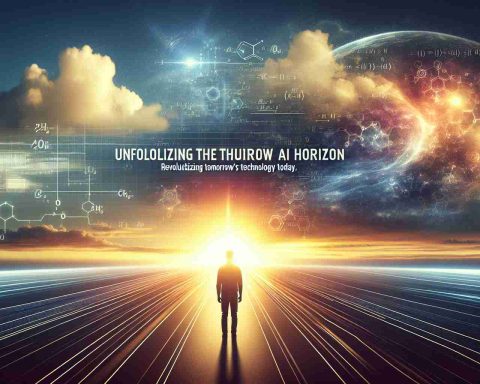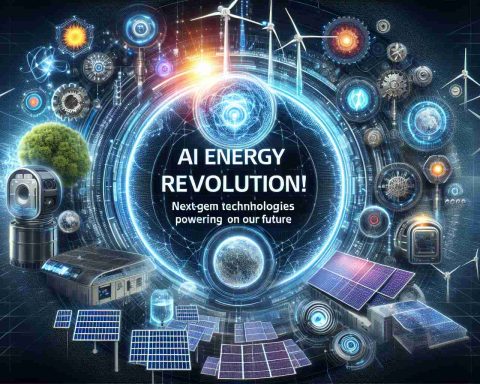In recent discussions about Artificial Intelligence (AI), experts have highlighted the fields most susceptible to automation. The rapid advancements in AI technology are reshaping various professions, notably in editorial roles where AI tools are regularly utilized to enhance content creation. Katharina Grienberger, a researcher at the Institute for Employment Research, focuses on how different occupations are influenced by this technological progression. She leads a team that developed the “Job Futuromat,” an innovative tool that analyzes approximately 9,000 job categories to determine the potential for machine replacement.
Research indicates that not only lower-skilled positions are affected but also highly specialized roles in science and IT, exhibiting significant vulnerability to AI. Surprisingly, some predictions suggest that administrative jobs in medium-sized companies might face the greatest risks of automation. However, Grienberger advocates that the idea of robots entirely taking over jobs is misleading.
By 2022, it was identified that about 38% of jobs possessed a high replacement potential. Interestingly, despite certain jobs being entirely replaceable by machines, there are sectors like baking, where human touch remains irreplaceable due to consumer preferences. The aim of the Job Futuromat is to prepare individuals for ongoing learning in the face of evolving technologies, ultimately turning potential job loss into opportunities for growth. Grienberger emphasizes the importance of continuous education to adapt to innovations, viewing these changes as a chance for advancement rather than a cause for fear.
Essential Tips and Insights on Navigating the AI-Driven Job Market
As we continue to witness the transformative effects of Artificial Intelligence (AI) on job markets, it’s essential for individuals to adapt and thrive in this evolving landscape. Here are some practical tips and interesting facts to help you navigate the challenges and opportunities presented by AI in your life, work, and school.
1. Embrace Lifelong Learning:
With AI technology rapidly advancing, the need for continuous education is more critical than ever. Engage in skills development through online courses, workshops, or adult education programs. Many platforms offer free resources to upskill in areas like digital literacy, data analysis, and coding. Staying updated with industry trends and technologies can significantly boost your employability.
2. Diversify Your Skill Set:
While some roles may be at higher risk of automation, cultivating a diverse skill set can protect you from job displacement. Focus on developing soft skills such as creativity, emotional intelligence, and problem-solving, as these are harder for AI to replicate. Combining these with technical skills can make you a well-rounded candidate in the job market.
3. Explore Emerging Fields:
AI is not just about replacing jobs; it also creates new opportunities. Consider pursuing careers in AI ethics, data science, AI programming, or cybersecurity, all of which are on the rise. Familiarize yourself with the latest developments in these fields to position yourself advantageously for future employment.
4. Network and Collaborate:
Building a strong professional network can lead to job opportunities and collaborations that may not be publicly advertised. Attend industry conferences, participate in online forums, and engage with professionals on platforms like LinkedIn. This can open doors to mentorship and knowledge-sharing, vital in adapting to new technologies.
5. Understand the ‘Human Touch’ Value:
Certain roles, especially those involving creativity and human interaction, remain irreplaceable. Professions in arts, healthcare, and education often thrive despite technological advancements. Recognize your unique strengths and how they can complement AI technologies, positioning you as a valuable asset in any organization.
Interesting Fact:
According to research, the potential for job replacement varies significantly across sectors. Surprisingly, less vulnerable industries include hospitality and healthcare, where interpersonal skills and human contact are essential. Always look for ways to integrate your personal strengths into your career path.
6. Leverage AI as a Tool:
Rather than viewing AI as a threat, consider how it can enhance your productivity. Familiarize yourself with AI tools that can automate mundane tasks, allowing you more time for strategic thinking and creative endeavors. For instance, using AI-driven analytics can provide insights into market trends, making you more effective in your role.
7. Keep a Positive Mindset:
Transitioning to a more AI-driven job market may seem daunting, but maintaining a positive outlook can help you embrace change. Think of the potential for growth and innovation that AI brings to various fields. Viewing these changes as opportunities rather than setbacks can significantly influence your career trajectory.
For more resources and insights on navigating the evolving job market influenced by AI, consider visiting Deloitte for reports and articles on workforce trends, or World Economic Forum for a comprehensive view on the future of jobs in an AI world.
By adopting these strategies and staying informed about the developments in AI, you can turn the potential threats of automation into opportunities for personal and professional growth.

















